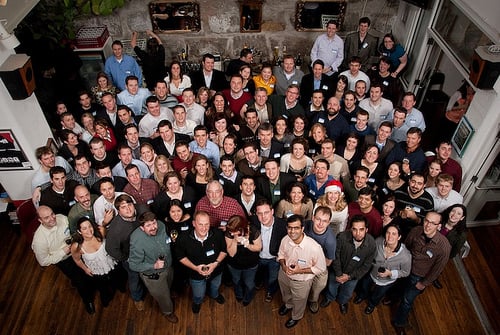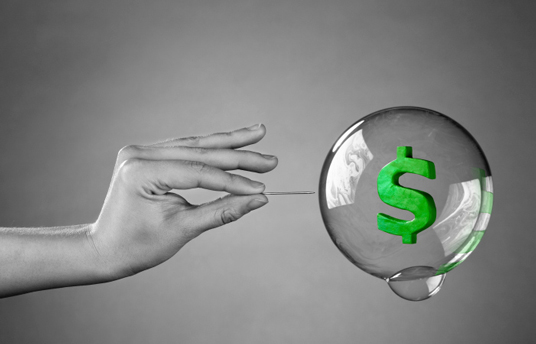Another book that I think book clubs should read is Disrupted by Dan Lyons. If you're a fan of the series Silicon Valley (HIGHLY RECOMMENDED), you may know that Lyons writes for that show. I 'binge-watched' the entire series in one go and then ran around telling everyone I know to watch it. So, when I saw that Lyons had written a book, I picked it up.
Warp-speed plot summary: This is a memoir about Lyons' time after he gets fired from his job as an editor at Newsweek. He's 52 with a wife and two children and his career has suddenly come to a screeching halt. He's a journalist and the world of journalism is done--as is he. So he does what many 'older' workers have to do: he reinvents himself and enters the unknown and surreal world of tech start-ups. He lands a job at Hubspot, a 'hot' start-up, as "marketing fellow," and his experiences there are what he writes about. Lyons takes the reader on an hilarious and eye-popping journey as he acts as anthropologist and tour guide visiting an exotic and possibly dangerous tribe.
So, what can your book club discuss?
There is a lot to talk about, so in no particular order:
- You'll want to discuss the company culture and what that means. What kind of corporate culture is good? It's fascinating to think about how companies used to treat employees and how much that has changed, especially at technology companies in the Silicon Valley. How did this happen? What does it say about us as people, as a society? Is the way things are now better than they used to be? Is labor, as Lyons states, still being exploited by capital, but this time while wearing a big smiley face?
- Related to the above, talk about how a company gets its employees to "drink the Kool Aid." And then discuss how a company gets its customers to guzzle the same drink down. Do you think many companies really DO make the world a better place?
- Also related to the above, talk about the greed involved in all of this. What is the motivation of the various characters involved? Also discuss the flaunting of wealth. What do you think of this? Areas such as the San Francisco Bay Area have been greatly impacted by the tech companies, in both good and bad ways. Talk about this. We always hear about the housing prices making it unaffordable for 'ordinary' people to live in the area, but what about the values of the City? Is the immense wealth and its unabashed display impacting citizens' values and what they deem important, and how they behave?
- You'll want to discuss ageism. Well, you may not want to discuss it, but you should. It's real and it affects many people. Are you part of the problem? Do you think young people are smarter than old? Are they naturally better at understanding technology? Can they learn things that older people can't? How old is 'old' to you? How can we stop ageism? Or are the ageists right?
- You'll want to discuss the elephant in the room. How stupid do tech executives, their spin doctors, venture capitalists, and their spin doctors, as portrayed by Lyons, think we are? Do you think Lyons' depiction of these people is accurate? Is it high time someone pointed out the ridiculousness of the bubble, or is it, as a couple of execs claim in the story, not a bubble but "an unprecedented long boom"? What about the business model as Lyons describes it: "grow fast, lost money, go public."? How are companies (which are made up of people) getting away with this?
- You'll want to discuss the idea of marketing, PR, spin, and sales. Can truth exist in such an environment? Where is the responsibility of the press in all of this? Does an objective press even exist, or is every journalist also being 'spun'?
- There is a LOT of psychology in this book. People are playing 'mind games'--manipulating employees, investors, and customers. Other people seem to willingly let themselves be exploited. You'll want to discuss this. What are the motivating factors behind the roles the characters elect to play? What about the role you're playing? Lyons refers to a Silicon Valley adage--if we use online services, we are not the customers, we are the products--we exist solely to be packaged up and sold to advertisers. How do you feel about that?
- You'll want to discuss the author. Clearly, this is HIS story, and no one at Hubspot has a chance to speak up for him or herself. How much can we trust Lyons? Although he can be self-deprecating and admittedly acerbic, is he being completely honest with us? How about with himself? He criticizes the frat-boy culture, but then whoops it up with writers who don't seem any different. Is this a case of "Do as I say, not as I do"? Is the "tribe" that he feels more comfortable in vastly different when it comes to ageism, sexism, racism, and all the other --ism's? How much of what he goes through at Hubspot is his own fault? Is he being fair to Hubspot?
- You should also talk about how vulnerable we all are with regard to our data being online. How do you feel about Lyons' statement: "Even the people who supposedly manage our data have no idea where all of it resides or who has access to it."? Does it make you want to bury your head in the sand further?









No comments:
Post a Comment